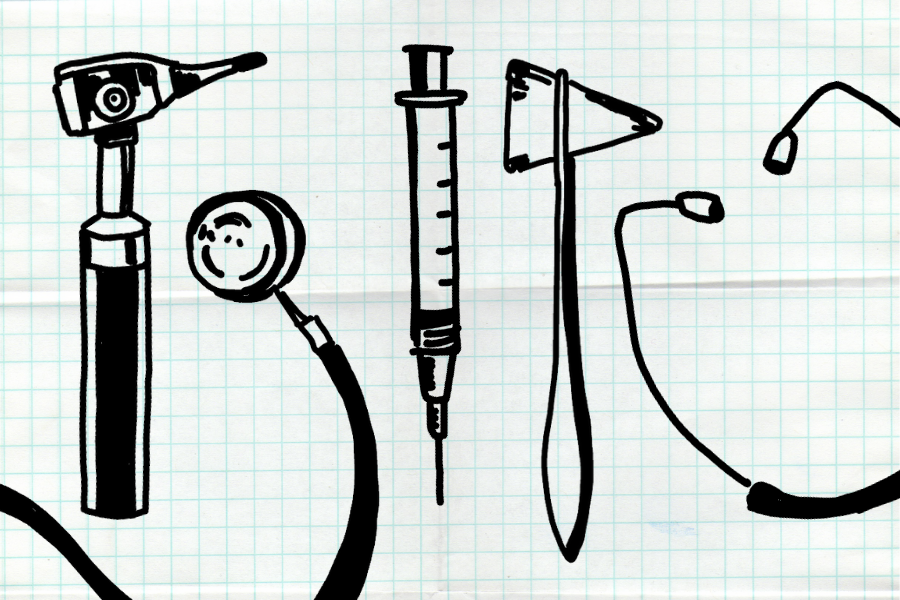Caped Clinicians aims to engage people in scientific literature through graphic novels, newsletters
Caped Clinicians is a startup publication founded by Northwestern students working to make scientific literature more accessible.
April 19, 2022
Not all heroes come wearing capes: some come geared with scientific knowledge.
Northwestern startup publication Caped Clinicians uses graphic novels and newsletters to simplify developments in the scientific field for readers without a background in STEM.
Caped Clinicians Founder and President Gabe Dara said he created the group after working in a Feinberg brain cancer lab. At the lab, the Weinberg sophomore said he struggled to keep up with his graduate student peers in grasping difficult readings.
Once he caught up, Dara said he realized understanding science did not need to be such a harrowing experience.
“Everyone is heavily affected by emerging and new developments in scientific fields,” Dara said. “For something that pervasive, I feel we should all be aware and have a right to that knowledge.”
Weinberg sophomore Clare Hardiman, Caped Clinicians’ vice president of finance and outreach, said the group chose topics based on their expected audience, which is mostly middle school, high school and college students.
Topics of the graphic novels include CRISPR, a gene-editing system, and brain-machine interface, a system that can interpret brain signals into computer commands.
“We try to make our topics pretty broad and wide-reaching, rather than specific and niche, because there’s just more literature for us to draw on,” Hardiman said.
After brainstorming topics, the writing team starts reading through literature reviews and peer-reviewed articles on the topic. The team then simplifies the main points and discusses ways to communicate the information through a story featuring two protagonists.
Senior Artist and Medill sophomore Ruth Ellen Berry said Lysander Wong, the lead illustrator and McCormick senior, made the character designs. She said the style is playful, fun and uses primary colors.
“Since our design team has grown, we’re now working on emulating Lysander’s design style, so we can keep a consistent style throughout the rest of the graphic novels,” Berry said.
The group has published four graphic novels on its website. The storylines follow white blood cell Leu and red blood cell Eric. The names derive from their scientific names: leukocytes and erythrocytes. Readers can follow the pair on their educational adventures, as Leu explains various scientific concepts to Eric.
Before publishing, the works are reviewed for accuracy by NU faculty established in the field. The novels are then published to the Caped Clinicians website, where anyone can access them for free.
Caped Clinicians has partnered with local organizations like the Northwestern Center for Talent Development to distribute the graphic novels directly to students. It also offers a speaker series for students to learn about how scientists got involved in their fields.
“It’s really supposed to be a tool that helps students foster their interest in science and research,” Hardiman said. “(It) helps them along that path in simplifying and breaking down research that might otherwise be really hard to understand.”
Dara said he is aware of the disparities in access to scientific knowledge between different communities — and a lack of awareness can have life-threatening impacts. For example, community knowledge of nutritional and hygienic practices can result in lower rates of diabetes, he said.
In the future, Dara said he hopes the group can reach people beyond the Evanston and Chicago area.
“I would like for us to really impact as many people as possible,” Dara said.
Email: [email protected]
Twitter: @ashley_yw_lee
Related Stories:
— Pre-med students gain experience through shadowing program
— Art Encounter’s Art Club offers individuals with disabilities space to share their artistic voice
— NU Skate Club aims to make an inclusive space for skaters on campus












